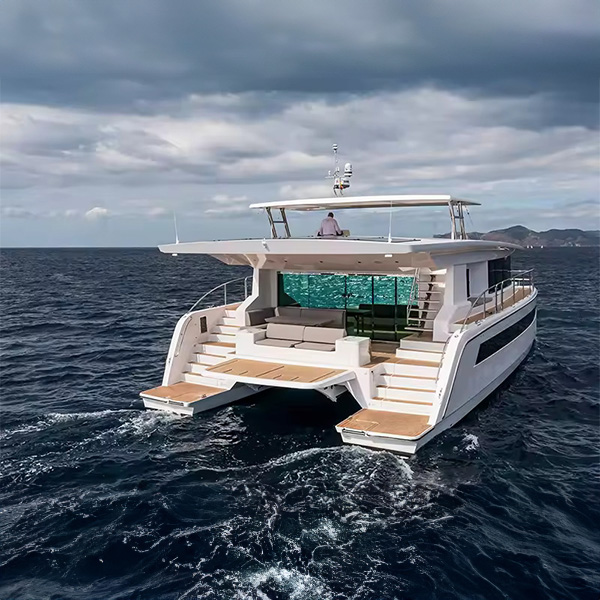The marine industry is undergoing a significant transformation, with electric power systems leading the way toward a more sustainable and efficient future. As boaters and manufacturers alike seek cleaner, quieter, and more reliable alternatives to traditional fuel-powered engines, electric power systems, particularly those powered by lithium batteries, are becoming increasingly popular.
The Rise of Electric Power in Marine Applications
Electric power systems have long been used in the automotive and renewable energy sectors, but their application in marine environments is gaining momentum. The benefits of electric power for boats are numerous: they offer silent operation, lower maintenance costs, and most importantly, they produce zero emissions, making them an environmentally friendly choice.
One of the key components driving this shift is the development of advanced battery technology, particularly lithium-ion batteries. These batteries offer several advantages over traditional lead-acid batteries, including a higher energy density, longer life span, and the ability to deliver consistent power output even as they discharge.
Why Lithium-Ion?
Lithium-ion batteries have revolutionized the way electric power systems are used in marine applications. Compared to traditional batteries, lithium-ion batteries are lighter, more efficient, and require less space—critical factors for marine vessels where weight and space are at a premium. Additionally, lithium-ion batteries can be discharged deeper and charged more quickly, providing boaters with longer operating times and shorter recharging intervals.
According to a recent article from Soundings, the adoption of lithium batteries in the marine industry is accelerating, with more boat owners recognizing the benefits of making the switch(Motor Boat & Yachting). This trend is not just limited to smaller boats or recreational craft—larger vessels, including yachts and commercial boats, are also beginning to embrace electric power systems as a viable alternative to traditional engines.
The Benefits of Going Electric
- Environmental Impact: One of the most compelling reasons to switch to electric power systems is their minimal environmental impact. Electric boats produce no exhaust fumes, reducing air and water pollution. This is particularly important in ecologically sensitive areas where the preservation of water quality and marine life is paramount.
- Noise Reduction: Electric motors are significantly quieter than internal combustion engines, offering a more peaceful and enjoyable experience on the water. This quiet operation also minimizes disturbances to marine life, promoting a more harmonious coexistence between human activity and nature.
- Lower Operating Costs: Electric power systems typically require less maintenance than traditional engines. With fewer moving parts and no need for oil changes, filters, or fuel, the long-term savings on maintenance and operating costs can be substantial.
- Improved Efficiency: Lithium-ion batteries deliver consistent power, ensuring that your boat performs reliably throughout your journey. This efficiency translates to longer cruising ranges and more time on the water without the need to refuel.
The Future of Marine Propulsion
As the demand for cleaner, more efficient energy solutions grows, the marine industry is poised to see even greater advancements in electric power systems. Ongoing research and development in battery technology, coupled with increased investment in electric propulsion, will likely lead to more powerful, longer-lasting, and even more compact systems in the coming years.
For boaters, the move toward electric power is not just about embracing new technology; it’s about contributing to a more sustainable future. Whether you’re a weekend sailor or a commercial operator, the benefits of switching to electric power are clear. With companies like Belrays leading the way in electric marine propulsion systems, the future of boating is undeniably electric.
To learn more about the benefits of lithium-ion batteries in marine applications, check out the full article on Soundings Online.


